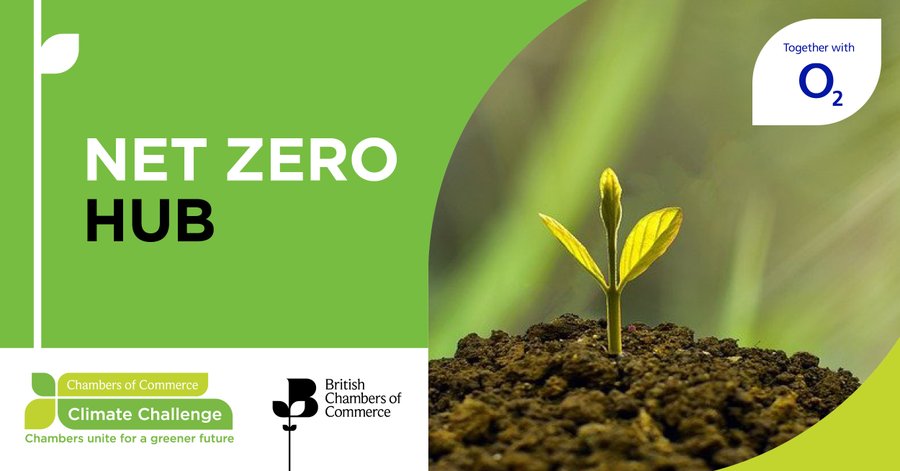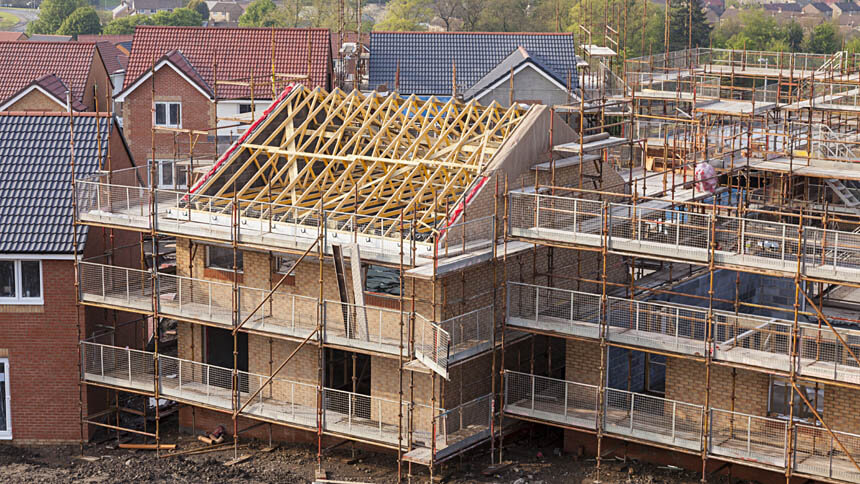A BCC survey of more than 1,000 businesses, of which 96% are SMEs, has found that nine out of 10 don’t fully understand what the Government’s target of making the UK Net Zero by 2050 means for them.
But there is a substantial divide between firms with more than 50 employees and those with fewer than 50, in terms of understanding and progress.
A total of 56% of the bigger firms have a ‘complete’ or ‘some understanding’ of the Net Zero target, compared to just 35% of the smaller ones.
Almost twice as many firms with more than 50 employees (36%) have developed a plan for reaching Net Zero compared to those with fewer than 50 (19%).

The research also showed that planning for the future skills needed to help businesses make the transition to greener and more sustainable operations has taken a backseat. Fewer than one in 20 firms (4%) have carried out a written assessment of the green jobs or skills they will need in-house over the next 10 years.
One in five businesses (21%) also think that, on balance, green technology will decrease the productivity of their company, whereas 10% think it will provide a boost.
Firms with a negative view of making improvements said they were worried about the extra costs or time required in adopting green technology.
For instance, a small retailer in Norfolk said: “Electric Vans have too limited a range to be effective for us, meaning we will have to waste time to re-charge during delivery rounds, reducing productivity.”
Whereas those who had embraced changes cited cost savings and improved efficiency, with a micro information and comms firm in Herefordshire saying: “Over the last 18 months we have changed the majority of our lighting to LED, and as a result have achieved a net saving of over £1,000 per annum even after the cost of [installation] is taken into account.”
The survey also revealed many firms are using new technology or adopting greener policies even if their overall understanding of reaching Net Zero is incomplete.
The research showed that:
- More than two thirds of SMEs (69%) have installed LED lighting
- More than a third (34%) are investing in greener vehicles
- Just under a third (30%) are using solar panels
- Almost half (46%) are using recycling and waste management strategies
- Over a quarter (28%) use renewable energy providers or tariffs
- Two out of five SMEs (42%) thinking about Net Zero will speak to Chambers of Commerce and almost a fifth (19%) to their banks, lawyers or accountants.
In response to the findings, the BCC and Lloyds Bank plan to bring together businesses from across the country to identify the most effective ways to target support and raise awareness.
Shevaun Haviland, Director General of the BCC, said: “The cost-of-living crisis means many smaller firms are focussed on keeping their heads above water. So, it is perhaps no surprise that researching and planning for Net Zero has slipped down the list of strategic priorities.
“But if the UK is to stand a chance of hitting its 2050 Net Zero target, then businesses must be put at the heart of the strategy to do that. They will provide one of the biggest dents in CO2 emissions by making the transition.
“Yet, there is a real danger that smaller businesses will get left behind unless politicians, banks and business leaders come together to galvanise action.
“Many chambers are working with their members to help them develop their plans to become carbon neutral. And this research shows that businesses are turning to Chambers and their banks for advice.
“We have a position of responsibility here and it is up to us to use our influence to improve awareness of the benefits of becoming more energy efficient and how to do it.
“Clarity and certainty will drive confidence to invest. As it stands, it is alarming that a sizeable number of firms think investing in green tech will damage their productivity.
“Our work with Lloyds Bank will help pinpoint the main drag factors holding companies back and then set out in clear terms what business and the financial sector can do to change the dynamics.”
Paul Gordon, Managing Director, Relationship Management Business & Commercial Banking at Lloyds Bank said: “SMEs account for 99% of UK business, three-fifths of employment, and half of the total turnover of the UK’s private sector. Their significance to the UK economy is not in any doubt.
“The research from BCC reaffirms the challenges businesses face on their journey to Net Zero, but it’s pleasing to see that firms are already focusing on quick wins such as installing LED lighting and utilising recycling and waste management strategies. These are crucial first steps on the road to achieving the UK’s Net Zero emissions target by 2050.
“However, the research also showed that smaller firms don’t always have access to the resources that larger firms have and may need more support. At Lloyds Bank, we are here to help, offering practical advice and financial support to firms, both as they develop their Net Zero strategies and for every step along their journeys as we build a more sustainable future together.”




















